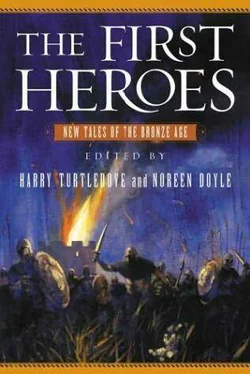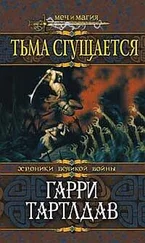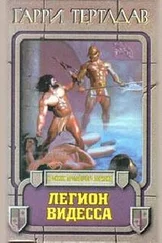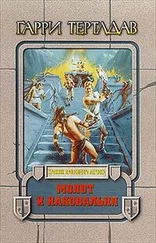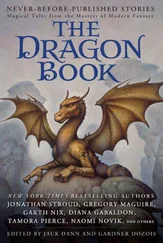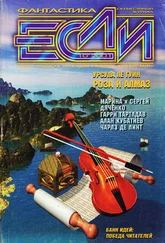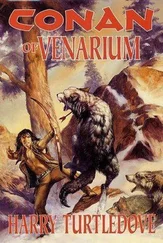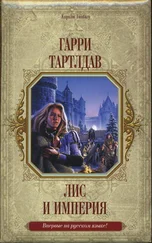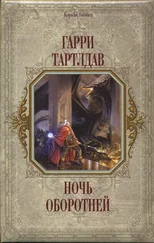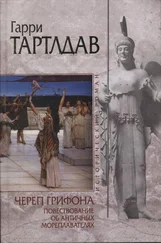Гарри Тертлдав - The First Heroes
Здесь есть возможность читать онлайн «Гарри Тертлдав - The First Heroes» весь текст электронной книги совершенно бесплатно (целиком полную версию без сокращений). В некоторых случаях можно слушать аудио, скачать через торрент в формате fb2 и присутствует краткое содержание. Жанр: Фантастика и фэнтези, на английском языке. Описание произведения, (предисловие) а так же отзывы посетителей доступны на портале библиотеки ЛибКат.
- Название:The First Heroes
- Автор:
- Жанр:
- Год:неизвестен
- ISBN:нет данных
- Рейтинг книги:3 / 5. Голосов: 1
-
Избранное:Добавить в избранное
- Отзывы:
-
Ваша оценка:
- 60
- 1
- 2
- 3
- 4
- 5
The First Heroes: краткое содержание, описание и аннотация
Предлагаем к чтению аннотацию, описание, краткое содержание или предисловие (зависит от того, что написал сам автор книги «The First Heroes»). Если вы не нашли необходимую информацию о книге — напишите в комментариях, мы постараемся отыскать её.
The First Heroes — читать онлайн бесплатно полную книгу (весь текст) целиком
Ниже представлен текст книги, разбитый по страницам. Система сохранения места последней прочитанной страницы, позволяет с удобством читать онлайн бесплатно книгу «The First Heroes», без необходимости каждый раз заново искать на чём Вы остановились. Поставьте закладку, и сможете в любой момент перейти на страницу, на которой закончили чтение.
Интервал:
Закладка:
"That's an excellent point, dear. The Sumerians even had chariots, which they used in their battles just like the Greeks. Did I show you the images of them on the computer?" "Not yet. Do they look like the ones the Greeks rode around the city walls?" "We don't actually know what Greek chariots looked like," said Leslie. "But Daddy is right, there are actual pictures of Sumerian ones." "Even though they're older?" Megan thought for a moment. "I guess if you invented the wheel, you'd want to make sure everyone knew it."
Trent showed Megan images of Sumerian carts and chariots while Leslie washed up, then took her to the library to get a video. Leslie spent the hour reading about early Mesopotamia, the laptop beside her for taking notes. The glow of domestic contentment—the parents' eyes meeting after Megan said something wonderful could spark the most luminous serenity—still suffused the otherwise empty house, and this, plus perhaps the fact that she generally curled up in this armchair with a novel (the glass of wine also helped), shifted something within her, and the customs and practices of kalam, "The Land," began to suggest the most familiar and comfortable of stories: a Mystery (turning upon a former scribe's ability to enter a darkened chamber and read the clay tablets with his fingertips), a Melodrama (legal records told of wicked uncles challenging the legitimacy of their dead brothers' sons), a Gothic (involving the Sumerian custom of burying the family dead within one's house), and even a Romance (a marriage contract could bring the future bride, sometimes still a girl, into her husband's household without specifying who the husband will be, so that she grows up wondering which brother she shall marry). How easily the third millennium B.C. could be shaped to the varieties of the twentieth-century (or nineteenth-century, if Leslie is honest) novel, the template of bourgeois sensibility.
Trent came down the stairs, hardcover in hand, with the careful tread of one leaving a child just asleep. Leslie smiled and waved. "Still on Book III?" "For every category of ships I omit, I have to add an explanation for something else. She has already suggested that the story may last as long as the war." Leslie laughed. "Switch to the Odyssey, fast! I'm surprised you've kept her interested so long in a story where no one travels."
"I suspect she's waiting for the captive princess to be rescued and flee toward home." Trent dropped into the couch opposite Leslie. "Raymond Queneau once said that all novels are either iliads or odysseys. He wrote one, Odile, that was intended to encompass both modes."
"As its title suggests?"
A look of astonishment spread across Trent's face. "I never thought of that."
Leslie shook her head fondly. "But does this rule apply to pre-Homeric literature?"
"Good question. The Gilgamesh poem would be an odyssey, wouldn't it?"
"Maybe the later versions, not the Sumerian one. No descriptive journeys but lots of dialogue and social clashes."
"Huh." Trent pondered this. "So what do you call a Gilgamesh-Iliad? A Giliad?"
"Go to bed, Trenchant. I'll have something for you later." It was only after he had left, a grin on his face, that she realized what he was thinking.
He was asleep when she finally came to bed, the reading lamp on and a splayed book beside him on her pillow. Hamlet's Mill: An Essay on Myth and the Frame of Time. It was one of Trent's endearing qualities, that he fell in love with the assignments that were tossed to him: gave them his heart, which got bruised when they were kicked into some chute and later mashed flat in a change of plans. Entering the realm of novel tie-ins, land of the flat fees, he was already resolved to do more than asked. She shifted the book to the bedside table and slid in beside him, feeling an affection that flared brightest at the sight of her daughter's features visible in her sleeping husband.
As she pulled the sheet over her and darkness expanded beyond the bedroom walls, Leslie found herself thinking of the Iliad, seemingly more modern than the Odyssey, beginning with the war it treats already in progress and ending before its conclusion. Megan must already know the story of the Trojan Horse; will she be upset to hear of the burning towers, the slaughtered populace, and what awaits the victors who set out on triumphant returns? Gilgamesh was an iliad in that respect, too.
It is the last night of the end of history, and Leslie—who had been reading of the three tiers of cultivation in Mesopotamian farming— dreams of Nanshe climbing a tamarisk: emerging above the lower canopy of citrus and pomegranate to look across the grove, the date palms standing like aloof grownups surrounded by crowding children. Nanshe's playmates, feet planted among the cucumbers and lettuce, stood looking up as she scrambled higher, the breeze unimpeded in her hair. The sound of men raising the sluice gate carried clearly from the canal, and Nanshe imagined the water, trickling through the channels and branchings into the orchard, reaching at last to wet their toes. Their startled shrieks would rise like birds, and Nanshe would laugh and hurl down twigs.
"Your faces are tablets," she once cried, exulting at her friends' alarm, "I see what you really feel!" Father had been explaining to Enannatum how a man's expression and posture can disclose his true feelings, vital skill for any merchant. Invisible in a corner, Nanshe listened. Now every visage contained characters effaced and rewritten, yet legible to her questing eye. The canopy is a face, where stirring leaves bespeak Ekur's stealthy efforts to climb. The horizon is a register, the line where dust storms, the winter rains, attacking armies will first inscribe themselves. The world is a tablet, a stele, the frameless burst of meaning that Nanshe, alone between the fruit trees and the unforthcoming sky, resolves to see hear feel for her own.
The rentals were returned unwatched; Trent's redaction of Helen and Paris's rapprochement was left dangling. Cubicle workers stared transfixed before streaming video; officials disappeared into shelters; the skies fell silent. In the shocked still evening, the intolerable images replayed.
Connecticut, untouched by war for nearly two hundred years, got an upwind look. Leslie and Trent lived closer to Stamford than to Bridgeport, but it was toward the older city that Leslie traveled each day, to a thirty-floor gleaming wafer whose daily occupants flowed in and out on the nearby commuter trains. That afternoon, in response to a whispered comment by an ashen coworker, she rode up to the roof and looked out west. It was there: a low smudge on the horizon, widening as it spread on its own terrible winds into Brooklyn and New Jersey.
No work was done the next day, and the weeks that followed were traversed in a cloud of dazed grief. Megan, who had gotten (they later realized) a good dose of live coverage while her parents stood white-faced before the TV, had scary dreams about jets. Trent took a long time completing his assignments, then found new ones hard to get. It was somehow still that Tuesday, so violently nailed to history one could not pull free and move on.
"They now say less than ten thousand." No real numbers known at all, just vast uttered estimates, to be slowly refined by counting absences. From the hole in Pennsylvania, perhaps a salvageable black box. Amid horror, Leslie found herself yearning for story: a cockpit transcript, defiant last letter, jubilant claim of victory. Which of you have done this? The loathsome Taliban of Afghanistan denounced the attack, Saddam Hussein hailed it.
Work resumed, though badly. Leslie had to tell her tech staff not to go to CNN.com so often. She came home to a consistently clean house, sign enough of how Trent wasn't spending his days. Megan's school held its postponed Open House, and they stood before her cubby and examined her activities book, album of drawings, and her daily journal. Leslie turned to the journal entry for September 11, and they read:
Читать дальшеИнтервал:
Закладка:
Похожие книги на «The First Heroes»
Представляем Вашему вниманию похожие книги на «The First Heroes» списком для выбора. Мы отобрали схожую по названию и смыслу литературу в надежде предоставить читателям больше вариантов отыскать новые, интересные, ещё непрочитанные произведения.
Обсуждение, отзывы о книге «The First Heroes» и просто собственные мнения читателей. Оставьте ваши комментарии, напишите, что Вы думаете о произведении, его смысле или главных героях. Укажите что конкретно понравилось, а что нет, и почему Вы так считаете.
